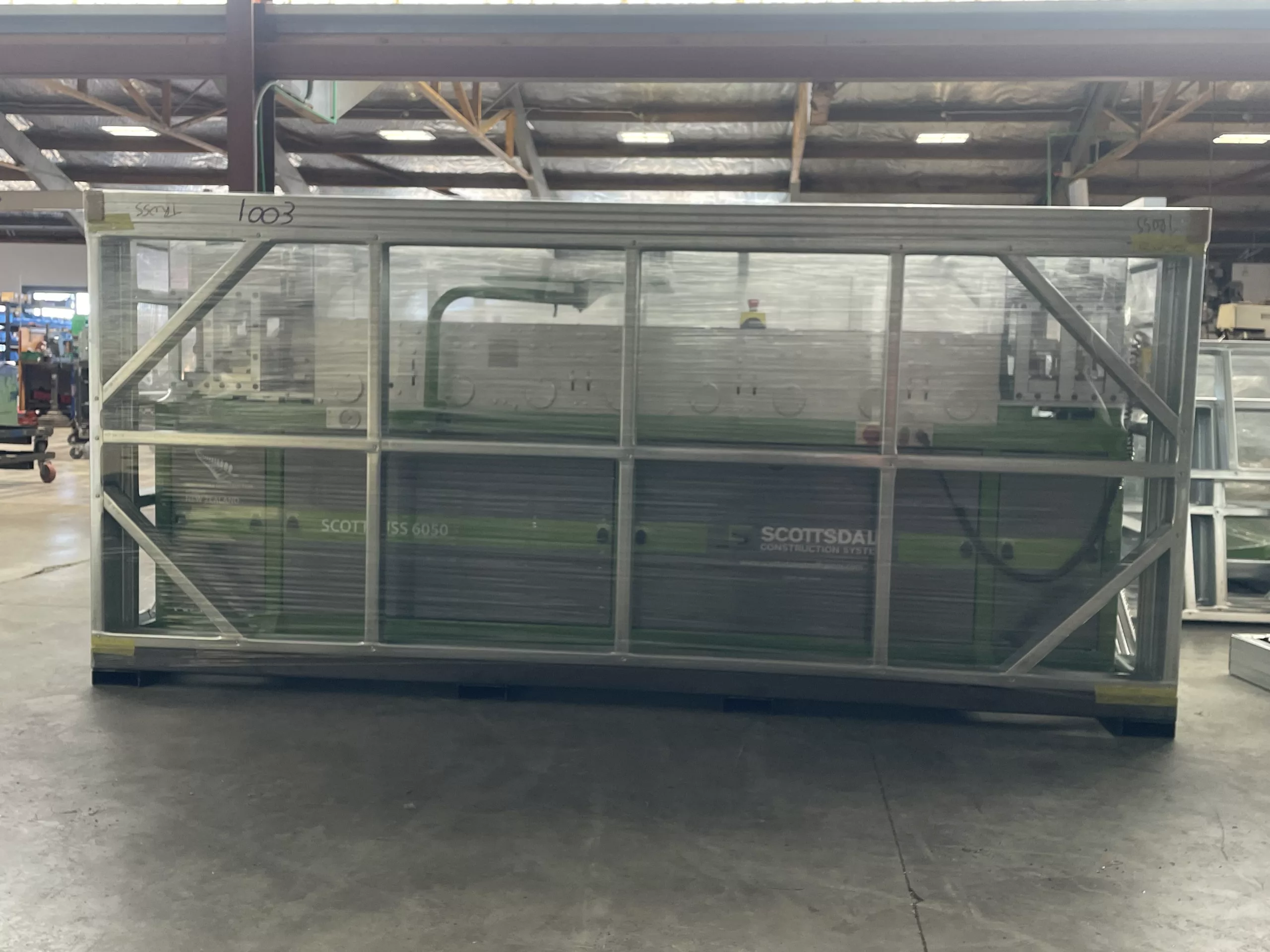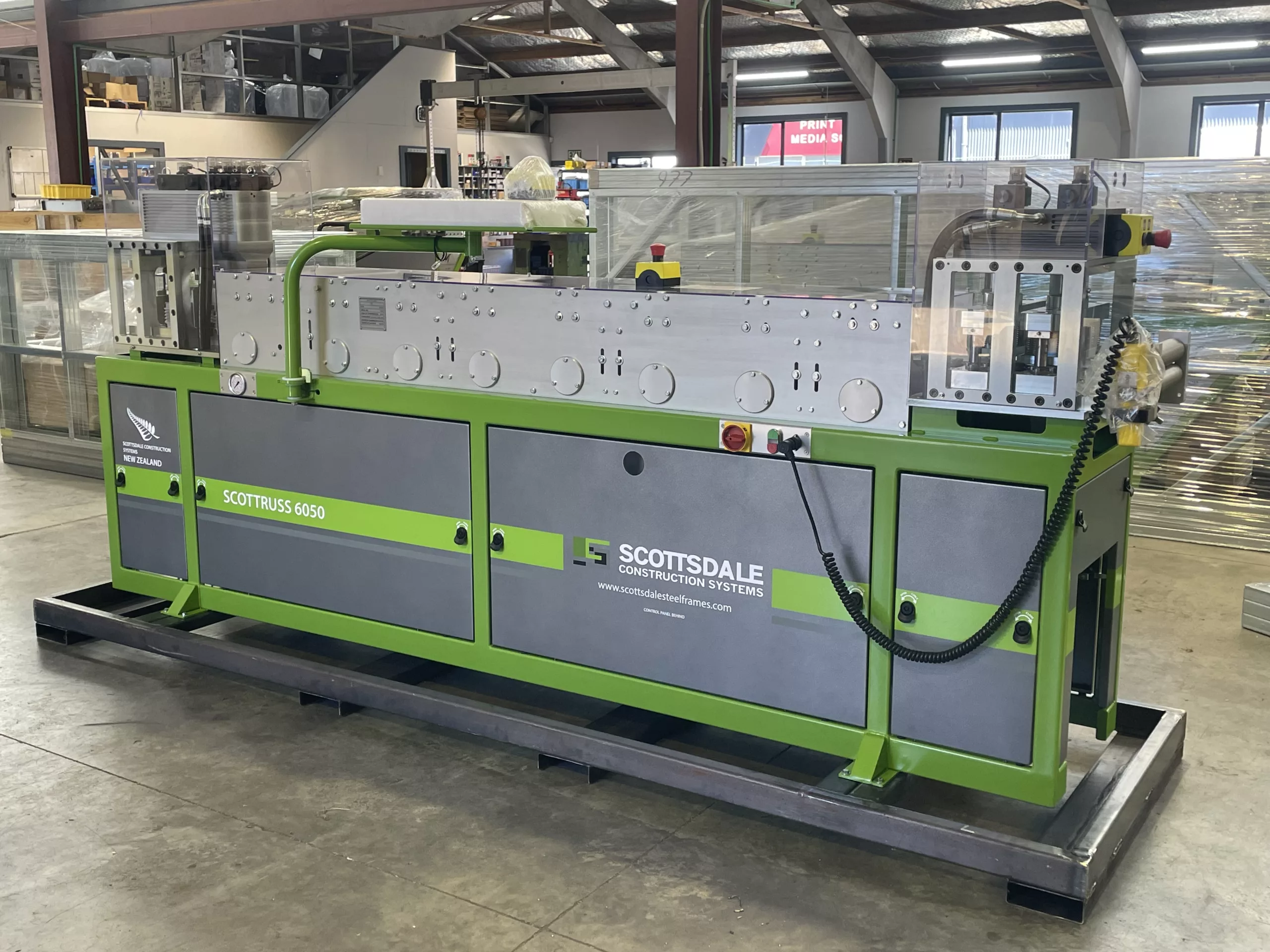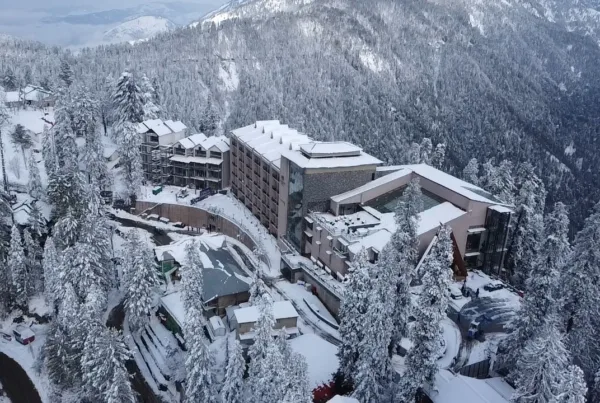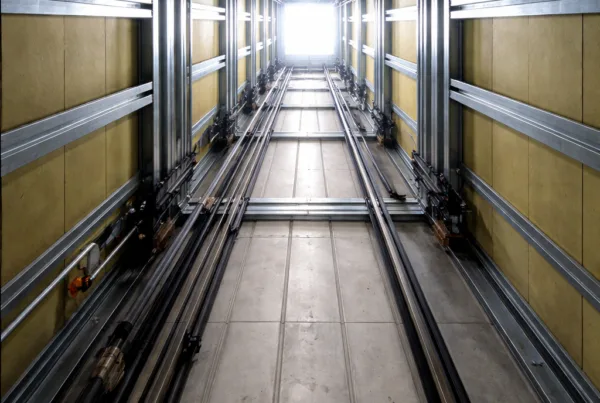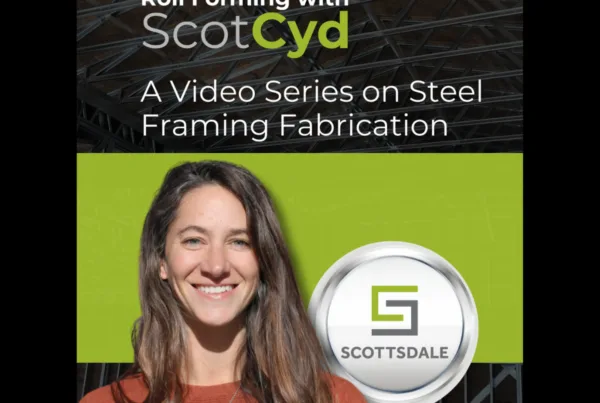Offsite construction and prefabricated steel framing are reshaping the way the petroleum industry approaches infrastructure. With growing demands for speed, strength, and reliability, steel framing has emerged as a strategic solution, delivering efficiency and long-term value in remote, high-performance environments. Leveraging advanced roll forming technologies, companies are now integrating steel truss systems and structural framing systems directly into modular construction workflows. This article explores how one petroleum company is driving continued success by adopting Scottsdale’s roll forming technology to streamline their offsite operations.
We previously wrote about Total Field & Environmental Services (TFES), a North Dakota based oilfield service company. We were pleased to welcome a stellar company outside the typical residential construction realm into our ecosystem. It showed the versatility and power of our Scotpanel 7090G2 system, arguably the most sold roll forming machine globally. TFES’s early success with their Scottsdale roll former led them to quickly expand their capabilities by adding the Scottruss 6050G1 to their operation, just months after putting their Scotpanel 7090G2 roll forming machine into service. The reality is that prefabricated steel framing and offsite construction help any building segment beyond the typical residential applications.
Welcome aboard once again. It is exciting to witness your continued growth and expansion. A special thanks to TFES owner Tony Burke for his vision and for recognizing the value of strategic innovation, deploying it quickly to strengthen his industry and the company’s competitive edge in his market.
Who is Total Field & Environmental Services (TFES)
TFES is based in North Dakota and caters to the Bakken Basin oil exploration segment in the energy industry. TFES specializes in building prefabricated modular units designed to house and store a wide range of oil exploration equipment and supplies, including everything from chemicals to generators. With cold-formed steel framing, TFES can reduce the number of studs required compared to traditional wood framing, enhancing structural strength and construction efficiency in their modular units.
Tony Burke, owner and president of TFES, brings extensive expertise and deep industry knowledge from the energy sector. In 2024, TFES acquired a Scotpanel 7090G2 roll forming machine, which quickly proved to be a powerful addition to their business, perfectly complementing their operations and accelerating their growth. Encouraged by the efficiency of this widely distributed roll forming system, TFES quickly ordered a steel truss manufacturing system, Scottruss 6050G1, to expand their operation.

Why TFES Invested in Another Scottsdale Roll Forming Machine
Tony Burke was clear and candid on why he moved so quickly to acquire another Scottsdale roll forming machine, highlighting that Scottsdale’s technology and cold-formed steel have fundamentally transformed his business:
The entire Scottsdale Construction System team has been amazing before, during, and after we decided to purchase our first panel machine and join the Scottsdale family!
Before we purchased our panel machine [Scotpanel 7090G2], our company up here in North Dakota was, let’s just say, challenged every day, 7 days a week, pushing to deliver for our customers. Now, after two months with our panel machine, we are leading our industry with quality, timeliness in project execution, and engineering buildings that exceed the expectations of the oil and gas industry!
The products, support, encouragement, and education that we received from the Scottsdale family are the sole reason we have expedited our schedule and purchased our truss machine [Scottruss 6050G1] six months ahead of schedule.
“Total Field & Environmental Services, LLC has become a manufacturing company because of Scottsdale Construction Systems! Our future is brighter today, our quality is better, and more importantly, our productivity has increased tenfold. The ease of training our crews to work with cold-formed steel framing has significantly streamlined our operations.
This is the best Christmas ever for me. I received a notification today that wheels are up, and our truss machine is headed to the USA!”
Tony Burke, Owner, Total Field and Environmental Services, LLC
Our Cold-Formed Steel Truss Manufacturing Automation
TFES chose Scottruss 6050G1 for a reason, it represents the next strategic step in expanding their steel framing operation. Scottruss is a comprehensive steel truss manufacturing system encompassing roll forming, design, engineering, and CNC controls all inside one seamlessly integrated platform, enabling efficient and precise production from start to finish. Optimized specifically for truss behavior, Scottruss is available in G1 and G2 generations of 6050 and 6075 models, catering to roof and floor framing with virtually any truss geometry imaginable. Similar to Scottsdale’s Scotpanel series of roll formers, Scottruss runs off our popular ScotSteel and ScotRF software.
The roll forming process also allows for the integration of secondary processes, such as punching holes, enhancing the efficiency and design possibilities of metal fabrication.
Why Use Scottsdale’s Roll Forming Solutions
Scottruss can be deployed in offsite construction context, as well as in a mobile factory for onsite truss fabrication. Some customers elect to deploy it for framing of industrial warehouse mezzanines, while many others deploy it for residential construction of cold-formed steel homes, panelizing entire floors. Other unique uses involve the replacement of long-span metal building tapered rafters.
All Scottruss shapes are ICC-ES certified, with the code approvals available to download on our website and covering the United States, Australia, New Zealand, Saudi Arabia, Abu Dhabi, as well as many other world regions using the International Building Code (IBC) and International Residential Code (IRC). Scottruss code approvals also include the California Building Code (CBC), California Residential Code (CRC), Florida Building Code, Florida Residential Code, as well as High-Velocity Hurricane Zone (HVHZ) endorsement for uses in Florida.
We wish TFES all the success in their endeavor, and we will be there to support them to thrive, prosper, and expand their business. We are honored to have been a part of their journey, assisting them in entering the steel framing fabrication industry.
Introduction to Cold-Formed Steel
Cold-formed steel refers to steel that is shaped at room temperature, without the application of heat, using processes such as rolling, pressing, or stamping. Unlike hot-rolled steel, which is formed while the metal is molten or heated, cold forming increases strength and precision through strain hardening. Cold-formed steel is a foundational material in modern construction, especially when paired with roll forming machines that automate the production of precise steel framing components.
What is Roll Forming
Roll forming is a continuous metal forming process used to shape sheet or strip metal into a desired cross-sectional profile by passing it through a series of precisely aligned rollers. Each roller set incrementally bends the metal until the final shape is achieved. Roll forming is especially favored in cold-formed steel construction for its speed, accuracy, and ability to integrate design and manufacturing workflows. Modern roll formers, such as those produced by Scottsdale Construction Systems, also incorporate advanced automations, including sophisticated software integrations, which allow for a seamless nexus between design, engineering, and fabrication, all with great precision and efficiency.
What are Steel Trusses
Steel trusses are structural frameworks composed of interconnected steel elements arranged in triangular configurations. This design efficiently distributes loads, providing strength and stability while minimizing material usage. Typically used to support roofs, floors, and steel trusses consist of top and bottom chords connected by web members, forming a rigid structure capable of spanning large distances without intermediate supports. Cold-formed steel trusses are designed following AISI S240 (USA), CSA S136 (Canada), AS 4600 (Australia), EN 1993 Eurocode 3 (European Union), and BS 5950 (United Kingdom), depending on project location.
Cold-formed steel trusses offer versatility in design, allowing for various roof shapes such as monoslope, dual pitch, scissor, and curved profiles. The adaptability and efficiency of cold-formed steel trusses make them a popular choice in modern construction projects, facilitating long spans, reducing construction time, and enhancing overall structural performance. Cold-formed steel trusses also facilitate easy placement of the MEP conduits within their depths, without the removal of cross section, as is the case with typical I-joists or C-joists, thus structurally weakening the framing members. Cold-formed steel trusses can be successfully deployed both in roofs and floors and offer far more flexibility to traditional framing in terms of shapes, spans, and performance.
How Do I Decide What Roll Forming Machine(s) Fits My Needs
Choosing the right roll forming machine depends on your production goals, project types, and operational setup.
When selecting a roll forming machine, consider your building application, whether you’re producing walls, roofs, floors, or prefabricated panels. Assess your profile requirements, including C and U sections, truss components, custom shapes, and specifications like web, flange, lip dimensions, and material thickness. Choose a brand that enables seamless data flow from modeling and engineering to production, leveraging integrated software to eliminate manual inputs, reduce errors, and streamline your entire process. Decide whether you need a single-profile or multi-profile machine. Ensure the machine integrates with your design process, supporting BIM workflows, CNC file compatibility, and direct control through your preferred software. Evaluate the machine’s mobility and footprint based on whether you operate onsite, in modular construction, or in a permanent factory. Budget beyond the machine’s purchase price by factoring in setup, training, software, support, material sourcing, and labor, prioritize lifecycle value and efficiency over upfront cost. Lastly, choose a manufacturer that offers strong post-sale support, including training, maintenance, spare parts, software integration, remote diagnostics, technical assistance, and engineering support.
Roll forming assemblies are quite complex and cannot be copied or easily reproduced. Decades of experience and engineering fine-tuning go a long way in assuring that a roll forming cage performs adequately over its intended range, and that all the auxiliary processes, such as cuts, punches, electronics, and software integrations, are properly configured. It is, therefore, important to choose a reputable manufacturer of roll forming equipment with a proven history and track record of delivering long-lasting, powerful, and sophisticated systems. It is advisable to always visit a framing factory deploying a particular roll former model and observe both roll forming machines in operation, as well as the quality of light-gauge steel framing it produces prior to purchasing a machine.
Scottsdale offers everything you need to get started. To explore the right roll forming solutions for your business, call us at 1 (888) 406-2080 or email us at rollformers@scottsdalesteelframes.info.
